
Arun is a local government district in West Sussex, England. It contains the towns of Arundel, Bognor Regis and Littlehampton, and takes its name from the River Arun, which runs through the centre of the district.
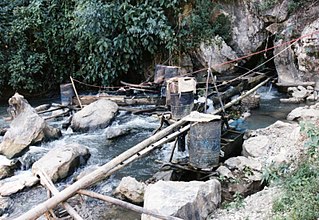
Micro hydro is a type of hydroelectric power that typically produces from 5 kW to 100 kW of electricity using the natural flow of water. Installations below 5 kW are called pico hydro. These installations can provide power to an isolated home or small community, or are sometimes connected to electric power networks, particularly where net metering is offered. There are many of these installations around the world, particularly in developing nations as they can provide an economical source of energy without the purchase of fuel. Micro hydro systems complement solar PV power systems because in many areas water flow, and thus available hydro power, is highest in the winter when solar energy is at a minimum. Micro hydro is frequently accomplished with a pelton wheel for high head, low flow water supply. The installation is often just a small dammed pool, at the top of a waterfall, with several hundred feet of pipe leading to a small generator housing. In low head sites, generally water wheels and Archimedes' screws are used.
College of Science and Technology - University of Rwanda, the former Kigali Institute of Science, and Technology in Kigali, Rwanda is the first technology-focused institution of higher education to be created by the Rwanda government.

A rocket stove is an efficient and hot burning stove using small-diameter wood fuel. Fuel is burned in a simple combustion chamber containing an insulated vertical chimney, which ensures almost complete combustion prior to the flames reaching the cooking surface. Rocket stove designs are most often used for portable stoves for cooking but the design is also used for large, fixed stoves in institutions, and to make rocket mass heaters for heating.
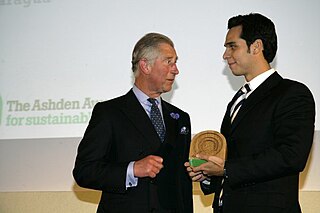
Ashden is a London-based charity that works in the field of sustainable energy and development. Its work includes the annual Ashden Awards, advocacy and research in the field of sustainable energy, and mentoring and practical support for award winners.

Pico hydro is a term used for hydroelectric power generation of under 5 kW. These generators have proven to be useful in small, remote communities that require only a small amount of electricity – for example, to power one or two fluorescent light bulbs and a TV or radio in 50 or so homes. Even smaller turbines of 200–300 W may power a single home with a drop of only 1 metre (3.3 ft). Pico-hydro setups typically are run-of-stream, meaning that a reservoir of water is not created, only a small weir is common, pipes divert some of the flow, drop this down a gradient, and through the turbine before being exhausted back to the stream.

Harish Hande is an Indian social entrepreneur, who co-founded SELCO India in 1995. He was awarded with the Ramon Magsaysay Award for 2011 for "his pragmatic efforts to put solar power technology in the hands of the poor, through his social enterprise SELCO India".
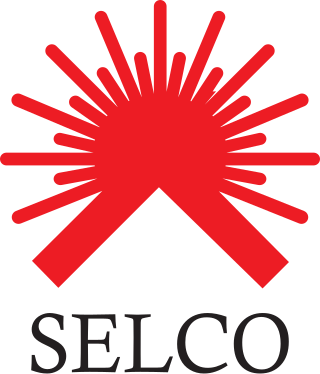
SELCO Solar Light Pvt. Ltd. is a for-profit social enterprise based in Bangalore, India. SELCO has played an instrumental role in improving living standards of poor households in rural India especially in the state of Karnataka through solar energy based interventions and low smoke cook stoves. In recognition of the services towards reduction of the gap in access to energy, SELCO has been awarded the prestigious Ashden Awards twice, in years 2005 and 2007. SELCO India was founded in 1995 by Dr.Harish Hande an alumnus of IIT Kharagpur with INR 15,000 funding from its co-founder Mr. Neville Williams. SELCO India has installed solar light systems in 350,000 houses till date.

The Grameen family of organizations has grown beyond Grameen Bank into a multi-faceted group of profitable and non-profit ventures, established by Muhammad Yunus, the Nobel Peace Prize-winning founder of Grameen Bank. Most of these organizations have central offices at the Grameen Bank Complex in Mirpur, Dhaka, Bangladesh. The Grameen Bank started to diversify in the late 1980s when it started attending to unutilized or underutilized fishing ponds, as well as irrigation pumps like deep tubewells. In 1989, these diversified interests started growing into separate organizations, as the fisheries project became Grameen Fisheries Foundation and the irrigation project became Grameen Krishi Foundation.
Low Carbon Communities (LCC) is one part of Marches Energy Agency; a leading climate change and sustainable energy social enterprise and a registered charity, based in the West Midlands, England.
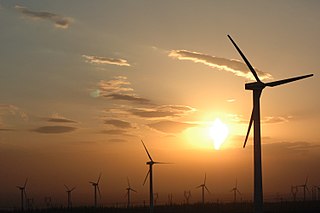
Renewable energy in developing countries is an increasingly used alternative to fossil fuel energy, as these countries scale up their energy supplies and address energy poverty. Renewable energy technology was once seen as unaffordable for developing countries. However, since 2015, investment in non-hydro renewable energy has been higher in developing countries than in developed countries, and comprised 54% of global renewable energy investment in 2019. The International Energy Agency forecasts that renewable energy will provide the majority of energy supply growth through 2030 in Africa and Central and South America, and 42% of supply growth in China.

SolarAid is an international development charity which is working to create a sustainable market for solar lights in Africa. In line with the Sustainable Development Goal 7: "Ensure access to affordable, reliable, sustainable and modern energy for all", the organisation's aim is to reduce global poverty and climate change through providing access to solar lights for rural communities. SolarAid wholly owns the social enterprise, SunnyMoney, the largest seller of solar lights in Africa. SolarAid was founded by Solarcentury, a solar energy company based in the UK.
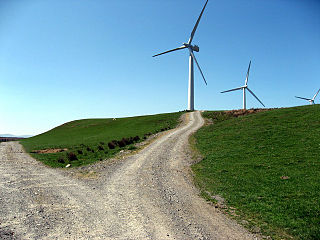
Moel Maelogan(shown on O.S. maps as 'Maelogen', and also sometimes spelled 'Moelogan' and 'Mælogan') is a hill on the western edge of Mynydd Hiraethog in north Wales, and overlooking the Conwy Valley. It is known mostly as the general location of a wind farm.
The Aryavart Bank (AB) is an Indian Regional Rural Bank (RRB) in Uttar Pradesh established on 1 April 2019. The bank was formed by the amalgamation of Gramin Bank of Aryavart and Allahabad UP Gramin Bank. It currently has 1365 branches and 22 regional offices in rural areas of Uttar Pradesh, around Lucknow. It functions under Regional Rural Banks' Act 1976 and is sponsored by Bank of India.Allahabad UP Gramin Bank and Gramin Bank of Aryavart are mergering with name Aryavart Bank e.r.f 01.04.2019. It is under the ownership of Ministry of Finance, Government of India.
Aprovecho is the name of two non-profit organizations located in Cottage Grove, Oregon. Aprovecho Sustainability Education Center is a not-for-profit organization based in the vicinity of Cottage Grove, Oregon. Its focus is on sustainable living, including permaculture and renewable energy. Its sister organization, Aprovecho Research Center, develops efficient cook stoves for use in developing countries.
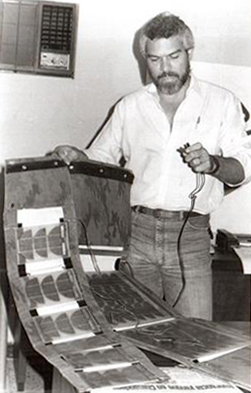
ECAMI is a renewable energy business based in Nicaragua, focusing on solar photovoltaics, wind power and hydroelectric system.
Marches Energy Agency (MEA) is an energy agency in the United Kingdom, operating on a not-for-profit basis. The agency was formed by Shropshire County Council in 1995 to promote the use of sustainable energy in the area. Richard Davies was the director from 1998 to 2014, having previously worked as a chemical engineer. Much of their work is conduction in partnership with local authorities, and focuses on helping communities cut their carbon emissions, especially in rural areas.
Masood ul-Mulk TI is a Pakistani expert on humanitarian aid and a development practitioner. He is the CEO of SRSP the largest NGO working to alleviate poverty in North-West Pakistan.
Programme for Economic Advancement and Community Empowerment (PEACE), is a four-year project funded by the European Union. and implemented by the Sarhad Rural Support Programme (SRSP). It was launched in 2013 in all districts of Malakand Division, Khyber Pakhtunkhwa, Pakistan, namely, Swat, Shangla, Buner, Lower Dir, Upper Dir, Chitral and Malakand Agency.
PEG Africa is a for profit corporation, financing and deploying solar power to households and SMEs in West Africa. The company provides loans for pay-as-you-go (PAYG) solar power home systems and solar water irrigation to customers that do not have access to an electrical grid. The loans are repaid by customers in small increments, using mobile payments. The solar power home systems can be used by customers as collateral for loans on further products and services.












